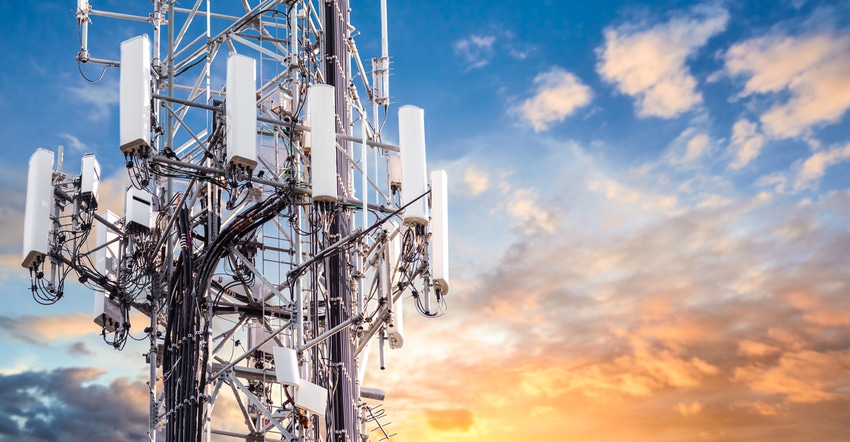
You may have heard of the upcoming 5G network. It is the next cellular data system and is expected to be 100 times faster than the current 4G network. While this new network has significant speed advantages, one big disadvantage is that the cellular areas are much smaller for each tower. Currently, one cellphone tower can cover up to 40 miles in low-density areas. In the 5G network, a cell tower will cover only a fraction of the distance of a 4G tower. Therefore, cellular data companies such as Verizon and AT&T will be required to construct many new cell towers in the next few years. Landowners will be approached about cellphone tower leases, and a basic understanding of these leases will be critical for negotiations.
As with any utility-type lease (cell tower, solar, wind turbine), the landowner has an opportunity to receive additional income, but the lease does come with risks. The first thing to know about a lease is that it is negotiable. Like any buyer, the cell tower company will probably not give you its best offer at first. Do not be afraid to ask for more money. If you know of neighbors who have towers or are negotiating for a new one, you may want to ask them what they are being paid to have a comparison.
Removal clause
Another important consideration is removal of the tower. What happens if a new satellite technology comes along and makes cell towers obsolete overnight? The cell tower company could go out of business and not have funds to remove the thousands of towers it owns. The lease should contain a provision for a performance bond or some other mechanism to pay for the removal of the tower if the company does not remove it. Depending upon the type and size of the total project, the state siting board may require a performance bond — but it is good to have it in the lease regardless. The bond ensures that money is available to pay for the removal of the tower.
Consider drainage tile
For much of the state, special consideration should be given to drainage tile. The cell tower company should be required to repair, replace and reroute any drainage tile disturbed by the construction. The landowner can require that any repairs or replacement tile be installed by the landowner’s preferred contractor, or that the landowner must inspect and approve any tile work before it is covered.
Other considerations
Also address the location of the tower, utility lines and access roads. The lease should include a detailed survey of the exact location of the project. The tower, supporting structures and access road will usually be clearly identified on the survey. Do not give the cell tower company a property-wide lease that allows it to put the tower and access road anywhere it would like; the location should be part of the negotiations. The tower will require an eclectic supply and data cables. Be sure to know what kind of supply will be provided and where it will be. If it is underground, be sure it is deep enough not to affect farming operations; if it is aboveground, be aware of where the poles will be.
An advantage that a cell tower lease has over other types of leases is that it has a relatively small footprint. A cell tower lease may only use 10,000 square feet for the tower in addition to any land needed for access road. Many landowners find that the additional income from the cell tower lease far outweighs the inconvenience of the small piece of land used for the cell tower.
If approached about a cell tower lease, consider getting legal help. The lease will contain provisions that are legally technical and will have significant impacts for the landowner.
You get one chance to negotiate your lease. Most cell tower leases are 25 to 50 years long, so any bad terms in the lease will be experienced for a long time. Also, landowners should consult with their tax professional to understand the tax implications of entering into a lease.
Contact Moore, an attorney with Wright & Moore, at [email protected]; 740-990-0750; 92 N. Sandusky St., Suite 300, Delaware, OH43015; or ohiofarmlaw.com.
About the Author(s)
You May Also Like




